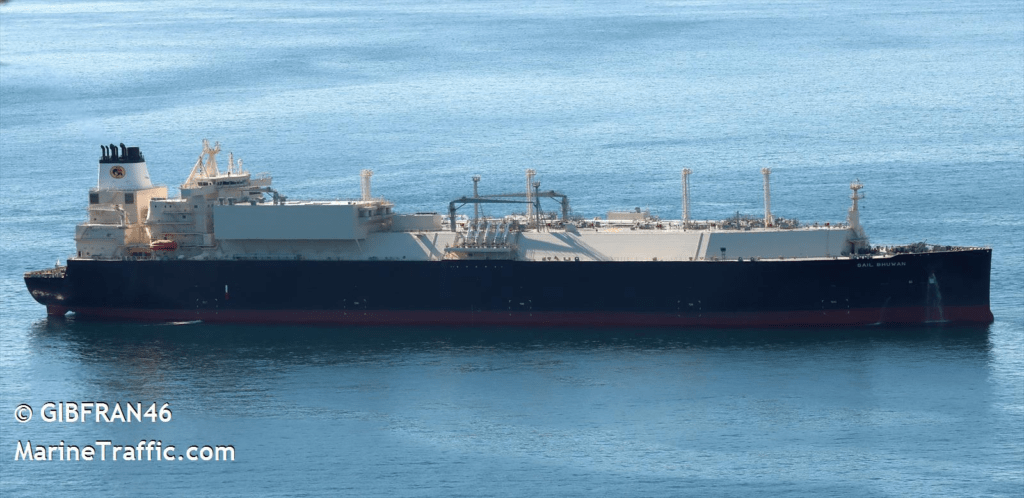TOP 15 LNG shipping companies with LNG Tankers. Liquefied Natural Gas (LNG) is becoming an increasingly important source of energy around the world, and as a result, the demand for LNG shipping companies is also rising. These companies are responsible for transporting LNG from one part of the world to another, ensuring that the energy needs of countries and regions are met.
Natural gas is the most environmentally friendly combustion option from fossil fuels, which means that prioritizing its use globally will help reduce global CO2 emissions and improve public health. The LNG process allows this profitable fuel to be safely and efficiently offloaded aboard purpose-built LNG vessels.

Liquefied natural gas (LNG) is natural gas that has been cooled to –260 ° F (–162 ° C), turning it into a liquid that is approximately 0.17% of its original volume. Natural gas is the most environmentally friendly combustion option from fossil fuels, which means that prioritizing its use globally will help reduce global CO2 emissions and improve public health. The LNG process allows this profitable fuel to be safely and efficiently offloaded aboard purpose-built LNG vessels.
LNG transportation companies can look forward to another successful year when profits can peak.
Also Read – Top 10 Biggest LNG Ship Carriers in the World – Latest 2023
One of the main drivers for this rise in demand is that the LNG sector presents great opportunities when it comes to tackling climate change. LNG is emerging as a cost-competitive and cleaner-burning fuel with particularly attractive applications within the heavy-duty road transport and shipping industries, making it a great tool for companies looking to achieve net-zero.
So, which are the world’s Top companies driving growth in the LNG sector?
Top 12 LNG Shipping companies of 2022 with LNG Tankers
1. Qatar Gas Transport Company Limited – Nakilat
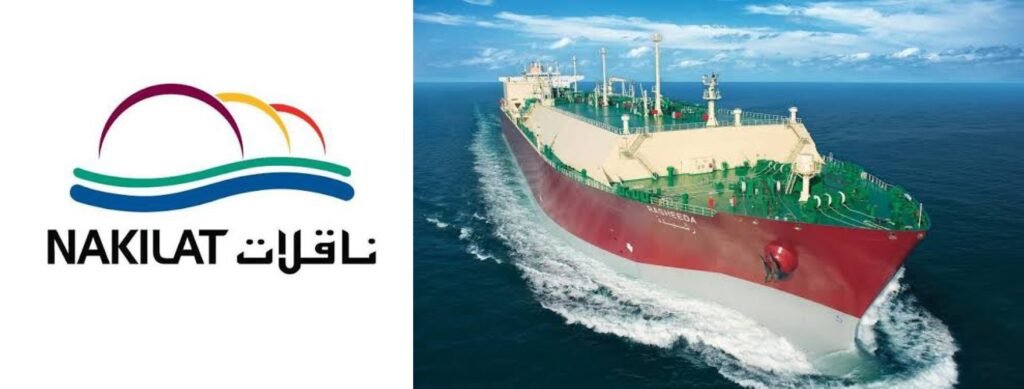
Qatar Gas Transport Company Limited, commonly known as Nakilat (Arabic: شركة قطر لنقل الغاز المحدودة, ناقلات) is a Qatari shipping and maritime company. Its LNG shipping fleet is the largest in the world, comprising 74 vessels.
Via two strategic joint ventures – Nakilat-Keppel Offshore & Marine (N-KOM) and Qatar Fabrication Company (QFAB) – Nakilat operates the ship repair and offshore construction facilities at Erhama Bin Jaber Al Jalahma Shipyard in the State of Qatar’s Port of Ras Laffan.
NAKILAT’S SHIPS CARRY OVER TWO-THIRDS OF QATAR’S LNG EXPORTS
- Exporting about 78 million tonnes of LNG in 2018, the State of Qatar remains the world’s largest LNG exporter.
- Nakilat being a shipping arm of Qatar’s LNG, delivered over two-thirds of Qatar’s LNG exports across the oceans.
- Nakilat’s LNG ships currently carry about 11.5% of the global LNG capacity.
Read More 10 Nakilat Shipping Facts – Qatar Gas LNG Shipping
2. MOL – Mitsui O.S.K. Lines
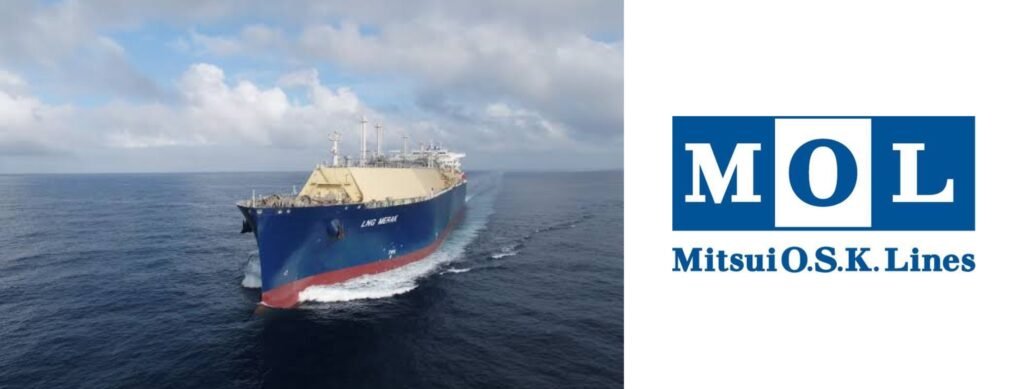
Japan’s Mitsui OSK Lines (MOL) has the world’s 2nd most valuable fleet of LNG carriers, worth close to US$6Bn, according to UK-based ship valuation firm VesselsValue.
MOL is one of the largest LNG shipping companies in the world, with a fleet of around 90 vessels. The company operates a variety of vessel types, including LNG carriers, floating storage and regasification units (FSRUs), and conventional tankers. MOL’s LNG shipping business is part of a wider portfolio of shipping activities, including container shipping, car transportation, and dry bulk shipping.
With 90 vessels, MOL’s fleet has a valuation of US$5.925Bn. Most recently, MOL took delivery of LNG Megrez, an LNG carrier with 174,000 m3 capacity built at China’s Hudong-Zhonghua Shipbuilding. LNG Megrez was the last of four conventional newbuildings for the Yamal LNG project. MOL and COSCO Shipping have 50-50 ownership of the vessel.
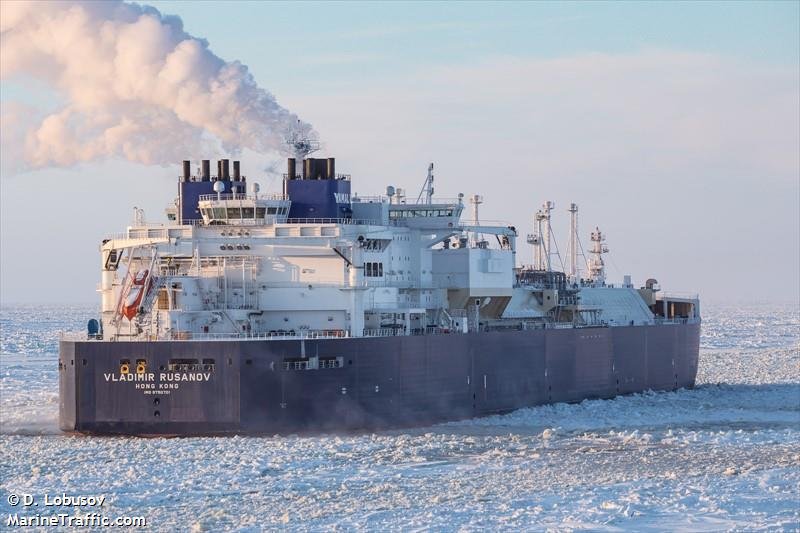
Demand for liquefied natural gas (LNG) has been increasing as an environmentally friendly, clean energy source. MOL has accumulated considerable expertise in this field since 1983, when we first participated in LNG transport, and is proud to be in the forefront of LNG carrier ownership, management, and operation. In 2018, we became the first Asian shipping company to operate an ice-breaking LNG carrier for the Yamal LNG project, and pioneered the Northern Sea Route, moving ahead with our cutting-edge initiatives.
MOL owns and operates liquefied petroleum gas (LPG) tankers, and in 2016, building upon our extensive experience and know-how acquired in both the LNG carrier and LPG carrier fields, we began operating the world’s first very large ethane carrier in a strategic tie-up with Reliance Industries Limited in India.
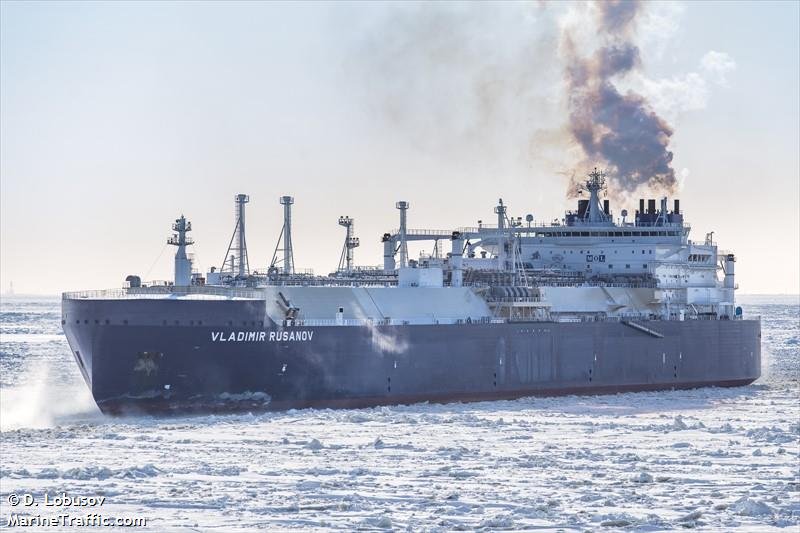
Do you Know? The Vladimir Rusanov, is the first newbuilding ice-breaking LNG carrier for the Russia Yamal LNG Project.
MOL continually strives to provide safe, reliable ocean transport services to meet demand for liquefied gas, a sector where we anticipate robust growth in the future.
3. SHELL
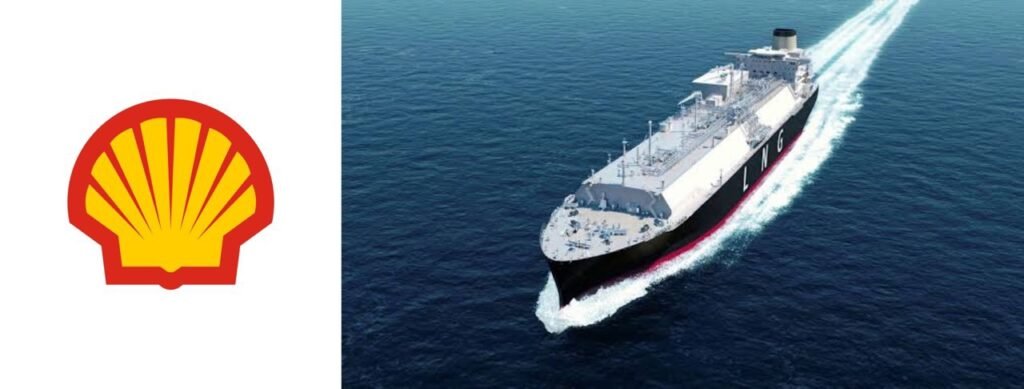
As a pioneer in the LNG market, Shell has been involved in a global LNG project for over 50 years.
The world’s first LNG plant, located in Algeria, received delivery assistance in 1964 from Shell, which also shipped the resulting product to the UK for sale. Shell is at the forefront of the LNG trade in many ways. The company’s ongoing supply projects are currently represented in 10 countries around the world, including an LNG plant in Brunei, LNG in Oman, and LNG in Nigeria.
The parent company of the Shell group is Royal Dutch Shell plc, which is incorporated in England and Wales. Shell businesses consists of – Upstream explores for and extracts crude oil and natural gas; Downstream refines, supplies, trades and ships crude worldwide, manufactures and markets a range of products, and produces petrochemicals for industrial customers.
Shell Trading supports the Shell businesses, in particular Oil Products, Gas and Power and Chemicals, by trading natural gas, electrical power, crude oil, refined products, biofuels, chemical feedstocks, environmental products and freight. Shell Trading also manages one of the world’s largest fleets of LNG carriers and oil tankers and provide maritime expertise to Shell companies and external customers.
4. CHEVRON
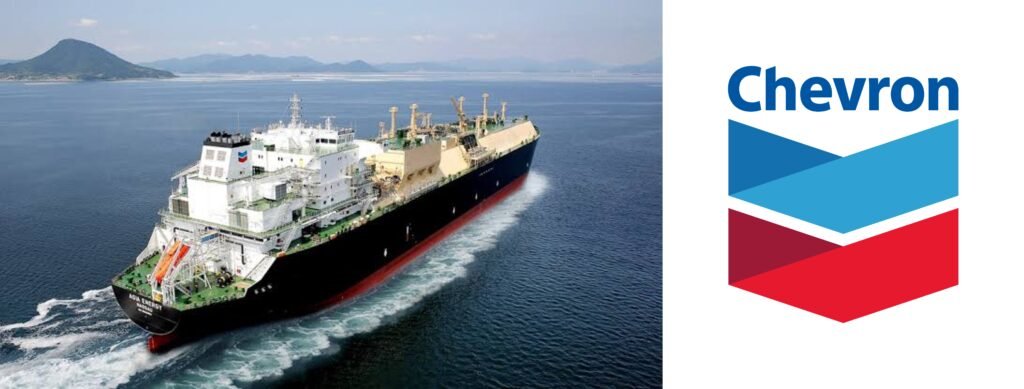
Chevron CEO John Watson said at the 18th International LNG Conference and Exhibition: “Experts predict that global LNG demand will grow by nearly 130 percent by 2035.”
To match this figure, Chevron’s Angola LNG Project is one of the most impressive energy projects in action in Africa today. With a processing capacity of 1.1 billion cubic feet of gas per day, Chevron ALNG has a significant impact on growing LNG demand, producing an average of 23,000 barrels of LNG per day in 2018.
Read More: Navigating to net zero: reducing emissions in shipping
5. Bp
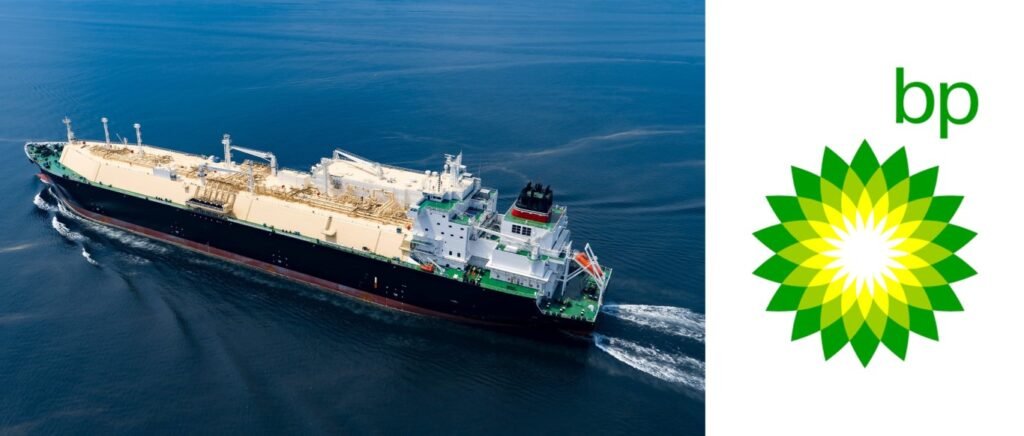
BP is focused on bringing innovative commercial solutions to the LNG market under its own brand, leveraging its extensive supply and shipping portfolio.
BP produces 25 billion cubic meters of gas per year for the European market as the main shareholder and partner of Shah Deniz, one of the largest gas condensate fields in Azerbaijan. Further developments are taking place in Asia and Africa: the company owns nearly a third of the Guangdong Dapeng LNG terminal in China, and BP has teamed up with Kosmos Energy in Senegal and Mauritania to comprehensively develop LNG projects in the region.
Bp fleet consists of state-of-the-art LNG vessels, partnership class and gem class, and a medium range ‘Handysize’ tanker, mariner class. This breadth of capability makes us a global leader in marine energy transportation.
Partnership class vessels have a capacity of 173,400 cubic metres and are the largest LNG vessels operated by bp. As such, they will play an important role in meeting the growing demand for LNG in both established and new consumer markets. bp is currently working to equip all our partnership class vessels with methane monitoring equipment to identify and quantify actual methane emissions in real time.
6. EQUINOR
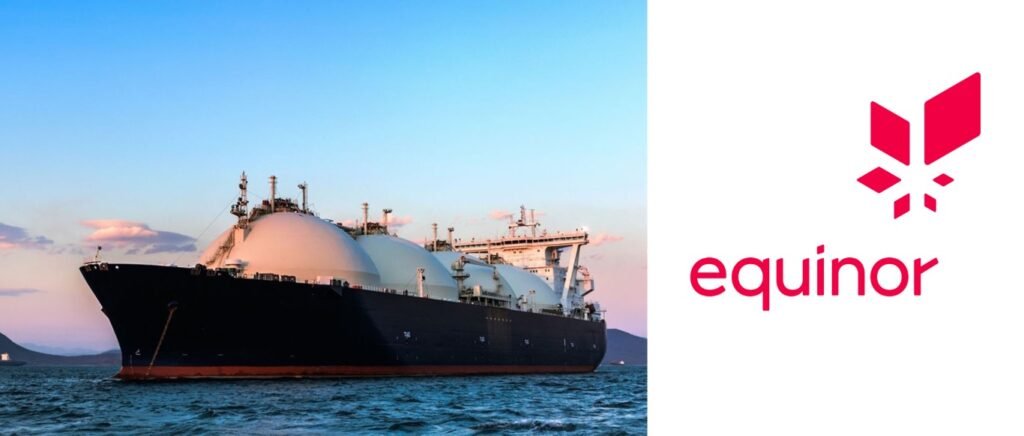
With over 150 vessels operating for us on the Norwegian continental shelf, including supply vessels, reserve vessels, anchor handling vessels, and about 100 tankers, we are an important charterer in the maritime market.
Realizing the potential of a growing market, Equinor now sells LNG to more than 20 countries around the world.
The Equinor shipping fleet
Our seaborne transportation of crude, gas liquids and LNG volumes involves more than 4300 voyages worldwide per year and moves over 100 million tonnes annually.
Today, over 150 ships are at work collecting and transporting oil, fetching and bringing equipment and providing emergency standby services just for Equinor – an enormous number of transport movements.
Equinor, which produces primarily from the Snevit field in the Barents Sea, has four LNG carriers and terminals in Hammerfest and Bilbao. Aiming to reduce CO2 emissions to near zero by 2030 in its offshore and onshore operations, Equinor is firmly committed to sustainability.
7. NYK Line
NYK Line is one of the major players in the LNG shipping industry and operates a fleet of over 70 vessels, including LNG carriers and FSRUs. The company’s LNG shipping business is part of a broader portfolio of shipping activities that includes container shipping, car transportation, and dry bulk shipping.
NYK Line’s LNG shipping business is focused on providing safe and reliable transportation of LNG to customers around the world. The company has long-term contracts with major LNG producers and buyers, which provides stability and predictability for the business.
In addition to its core LNG shipping business, NYK Line is also actively involved in the development of new technologies to improve the efficiency and safety of LNG transportation. For example, the company has been working on the development of a new type of LNG carrier that uses a new propulsion system that is expected to reduce fuel consumption and emissions.
Overall, NYK Line is a major player in the global LNG shipping industry and is well-positioned to continue to grow and expand as the demand for LNG continues to rise around the world.
8. Teekay LNG Partners
Teekay LNG Partners is a subsidiary of Teekay Corporation, a leading provider of energy transportation services. Teekay LNG Partners is focused solely on LNG shipping and operates a fleet of around 50 vessels, including LNG carriers and floating storage and regasification units (FSRUs).
The company’s fleet is one of the largest among pure-play LNG shipping companies, and it has a significant presence in the global LNG market. Teekay LNG Partners has long-term contracts with major LNG producers and buyers, which provides stability and predictability for the business.
In addition to its core LNG shipping business, Teekay LNG Partners is also actively involved in the development of new technologies to improve the efficiency and safety of LNG transportation. For example, the company has been working on the development of a new type of LNG carrier that uses a new propulsion system that is expected to reduce fuel consumption and emissions.
Teekay LNG Partners is also committed to safety and environmental sustainability. The company has implemented a number of initiatives to reduce emissions, including the use of LNG as a fuel for its vessels. Teekay LNG Partners is also a member of the Getting to Zero Coalition, a group of companies committed to decarbonizing the shipping industry.
9. GasLog Ltd.
GasLog is another pure-play LNG shipping company, with a fleet of around 30 vessels. The company operates a variety of vessel types, including conventional LNG carriers and FSRUs. GasLog has a number of long-term contracts with major LNG producers and buyers, which provides stability for the business.
GasLog Ltd. is a leading international owner and operator of LNG carriers. The company was founded in 2003 and is headquartered in Monaco. GasLog operates a fleet of around 35 vessels, including LNG carriers and FSRUs.
The company’s vessels are used to transport LNG from production facilities to import terminals around the world. GasLog’s customers include major energy companies and national gas companies, as well as LNG traders and marketers.
GasLog is committed to safety and environmental sustainability. The company has implemented a number of initiatives to reduce emissions, including the use of LNG as a fuel for its vessels. In addition, GasLog is a member of the Getting to Zero Coalition, a group of companies committed to decarbonizing the shipping industry.
GasLog has a strong financial position and is well-positioned to capitalize on the growing demand for LNG around the world. The company has long-term contracts with major LNG producers and buyers, which provides stability and predictability for the business. In addition, GasLog has a flexible and modern fleet that is capable of meeting the changing needs of the LNG market.
GasLog is also committed to innovation and the development of new technologies to improve the efficiency and safety of LNG transportation. For example, the company has been working on the development of a new type of LNG carrier that uses a new propulsion system that is expected to reduce fuel consumption and emissions.
10. ENI
Based in Rome, Itlay. Eni has a global LNG portfolio based on long-term procurement contracts that include liquefaction and regasification plants. Seeking to develop international projects while maintaining its focus in Europe, the company sold the first LNG produced at its Jangkrik, Indonesia project in 2017.
Prior to that, in 2016, Eni teamed up with BP to sell LNG produced by Coral. Southern project in Mozambique for the next 20 years with an approximate annual production of 3.3 million tonnes per annum.
About ENI: LNG Shipping SpA, 100% owned by Eni SpA, was incorporated on 26 July 2001 and operates in the transportation by sea of liquefied natural gas (LNG) through the use of two proprietary LNG tankers: LNG Portovenere and LNG Lerici, each with a capacity of 65,000 cubic metres. The company also provides support to Eni for shipping needs and the LNG business.
ENI is very exclusive company with very limited ships. Italian ENI is examining the possible sale of its last two LNG vessels, LNG Lerici and LNG Portovenere, which are owned by its LNG Shipping subsidiary.
The two mid-sized carriers each have a capacity of 65 Mm3. ENI last sold two 41-Mm3 carriers, LNG Palmaria and LNG Elba, in 2012.
At present, ENI has a fleet of 19 ships, which include offshore support vessels and the two remaining LNG carriers.
11. Flex LNG
Flex LNG is a Norwegian-based company that operates a fleet of LNG carriers. The company was founded in 2006 and has quickly become a major player in the global LNG shipping industry. Flex LNG currently operates a fleet of seven LNG carriers, with three more vessels expected to be delivered by the end of 2021.
Flex LNG is a relatively new entrant to the LNG shipping industry, having been founded in 2006. The company has a fleet of six vessels, all of which are modern and fuel-efficient. Flex LNG’s vessels are designed to transport LNG over long distances, which makes them well-suited for the global LNG trade.
Flex LNG’s fleet is among the most modern and technologically advanced in the industry. The company’s vessels are equipped with the latest technology to improve safety, efficiency, and environmental sustainability. For example, Flex LNG’s vessels are equipped with advanced boil-off gas (BOG) handling systems that allow for the efficient use of boil-off gas, reducing emissions and improving fuel efficiency.
Flex LNG’s vessels are also capable of using LNG as a fuel, which reduces emissions and improves environmental sustainability. In addition, Flex LNG is a member of the Getting to Zero Coalition, a group of companies committed to decarbonizing the shipping industry.
Flex LNG’s business model is based on long-term contracts with major LNG producers and buyers. This provides stability and predictability for the business, and ensures that Flex LNG’s vessels are fully utilized. The company’s long-term contracts also provide a high level of cash flow visibility, which is important for investors.
Flex LNG is well-positioned to capitalize on the growing demand for LNG around the world. The company’s modern and technologically advanced fleet, combined with its long-term contracts and commitment to environmental sustainability, make it a leader in the global LNG shipping industry. As the demand for LNG continues to rise, Flex LNG is well-positioned to continue to grow and expand its business.
12. BW Group
BW Group is a diversified shipping company with interests in LNG shipping, oil tanker shipping, and offshore drilling. The company operates a fleet of around 20 LNG carriers, as well as a number of FSRUs. BW Group has a significant presence in the global LNG market, with long-term contracts with major producers and buyers.
BW Group is a global maritime company that has been operating for over 80 years. The company is headquartered in Singapore and has a presence in more than 25 countries around the world. BW Group is involved in a range of maritime activities, including LNG shipping, offshore production, and tanker transportation.
In the LNG shipping sector, BW Group operates a fleet of modern and technologically advanced vessels that are used to transport LNG from production facilities to import terminals around the world. The company’s LNG fleet includes both traditional LNG carriers and FSRUs. In addition to its LNG shipping business, BW Group also operates a fleet of LPG carriers, crude oil tankers, and offshore production vessels.
BW Group is committed to safety and environmental sustainability. The company has implemented a number of initiatives to reduce emissions, including the use of LNG as a fuel for its vessels. In addition, BW Group is a member of the Getting to Zero Coalition, a group of companies committed to decarbonizing the shipping industry.
As the demand for LNG continues to rise, it is likely that we will see more companies entering the market, and existing players expanding their fleets and capabilities.
In conclusion, LNG shipping companies play a critical role in the global LNG supply chain, ensuring that LNG is transported safely and efficiently from production facilities to end users around the world. The companies listed above are some of the major players in the industry, and are likely to remain key players as the demand for LNG continues to grow.
You may also like,
- Top 10 Biggest LPG Ships of 2023
- Top 10 Biggest LNG Ships of 2023
- Top 10 Biggest LNG / LPG Ship Carriers in the World (Biggest LPG Ships)
List of Top 20 LNG Shipping Companies with LNG Tanker Ships
The companies listed below were not intended to be ranked in any particular order. They are simply provided as a list of LNG shipping companies in no order.
- Qatargas
- Shell
- ExxonMobil
- Chevron
- BP
- TotalEnergies
- Gazprom
- Mitsui O.S.K. Lines (MOL)
- NYK Line
- Teekay LNG Partners
- GasLog Ltd.
- Flex LNG
- Höegh LNG
- BW Group
- Golar LNG
- TMS Cardiff Gas
- Exmar
- Dynagas LNG Partners
- Maran Gas Maritime
- Nakilat.

